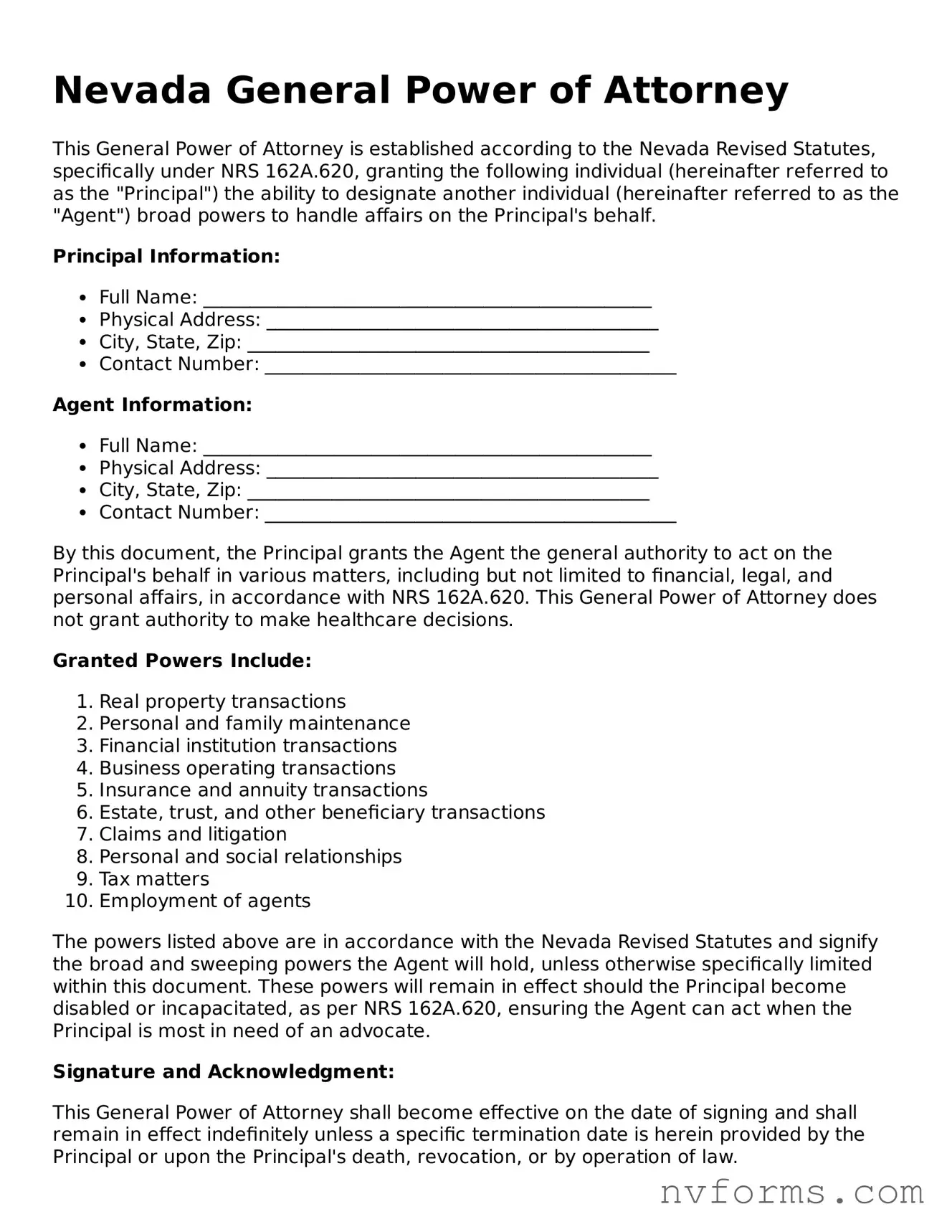Nevada General Power of Attorney
This General Power of Attorney is established according to the Nevada Revised Statutes, specifically under NRS 162A.620, granting the following individual (hereinafter referred to as the "Principal") the ability to designate another individual (hereinafter referred to as the "Agent") broad powers to handle affairs on the Principal's behalf.
Principal Information:
- Full Name: ________________________________________________
- Physical Address: __________________________________________
- City, State, Zip: ___________________________________________
- Contact Number: ____________________________________________
Agent Information:
- Full Name: ________________________________________________
- Physical Address: __________________________________________
- City, State, Zip: ___________________________________________
- Contact Number: ____________________________________________
By this document, the Principal grants the Agent the general authority to act on the Principal's behalf in various matters, including but not limited to financial, legal, and personal affairs, in accordance with NRS 162A.620. This General Power of Attorney does not grant authority to make healthcare decisions.
Granted Powers Include:
- Real property transactions
- Personal and family maintenance
- Financial institution transactions
- Business operating transactions
- Insurance and annuity transactions
- Estate, trust, and other beneficiary transactions
- Claims and litigation
- Personal and social relationships
- Tax matters
- Employment of agents
The powers listed above are in accordance with the Nevada Revised Statutes and signify the broad and sweeping powers the Agent will hold, unless otherwise specifically limited within this document. These powers will remain in effect should the Principal become disabled or incapacitated, as per NRS 162A.620, ensuring the Agent can act when the Principal is most in need of an advocate.
Signature and Acknowledgment:
This General Power of Attorney shall become effective on the date of signing and shall remain in effect indefinitely unless a specific termination date is herein provided by the Principal or upon the Principal's death, revocation, or by operation of law.
Principal's Signature: ___________________________ Date: _______________
Agent's Signature: _____________________________ Date: _______________
This General Power of Attorney was executed in the presence of two witnesses, neither of whom is the designated Agent, and has been notarized to validate its authenticity.
Witness 1 Signature: ___________________________ Date: _______________
Witness 2 Signature: ___________________________ Date: _______________
Notary Public: __________________________________
Date: _______________
My commission expires: _______________

